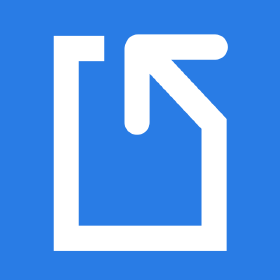
Docparser extracts structured data from PDFs and documents using rules you configure. Upload samples, define parsing logic, and export clean rows to sheets, CRMs, or APIs. Templates handle invoices, orders, and forms, while validation catches anomalies before data syncs downstream. Batch processing and webhooks automate high-volume workflows so back-office teams avoid copy-paste.
Create rules that locate fields by position, labels, or patterns, and iterate on samples to handle layout variation. Previews show extracted values and confidence, while reusable templates standardize common documents. Regex helpers and visual anchors aid non-developers, enabling operations teams to maintain parsers without ticket queues or bespoke engineering work.
Start from templates for invoices, POs, and packing slips, then add custom logic for edge cases. Versioning keeps changes traceable, and libraries can be shared across clients or regions. As vendors change formats, teams evolve templates together, preserving institutional knowledge and reducing drift, so onboardings stay quick even when file types proliferate.
Define checks for expected ranges and formats; flag outliers with reason codes and quarantine bad rows so they never sync. Dashboards show error trends to target fixes. Exception queues include thumbnails and highlights so reviewers verify context fast, improving accuracy while keeping throughput high during time-sensitive reconciliation cycles.
Send parsed data to Sheets, CRMs, databases, or webhooks. APIs support custom destinations, schedules run jobs automatically, and mapping aligns fields with target schemas. Mappers transform units, currencies, and dates on the fly so downstream systems receive consistent, well-typed data, eliminating swivel-chair work between apps during busy closes.
Encryption protects files at rest and in transit; access controls separate clients and teams. Retention policies remove old data on schedule, and audit logs document who changed what. Granular roles separate configuration from review and support audits required by finance and procurement, reducing risk while keeping operations nimble.


Recommended for finance, ops, and service teams converting document flows into structured data. Docparser reduces manual entry and errors while fitting existing systems. Templates cover common forms, rules tame exceptions, and automation scales without building a bespoke parser for every partner, freeing specialists to focus on exceptions that need judgment.
Manual parsing is slow, error-prone, and hard to audit. Docparser codifies rules so documents flow reliably into systems. Validation keeps data clean, and exports land where work happens. The result is faster processing, fewer mistakes, and clear accountability, with hours reclaimed from copying values cell by cell across tools and teams.
Visit their website to learn more about our product.


Grammarly is an AI-powered writing assistant that helps improve grammar, spelling, punctuation, and style in text.

Notion is an all-in-one workspace and AI-powered note-taking app that helps users create, manage, and collaborate on various types of content.
0 Opinions & Reviews